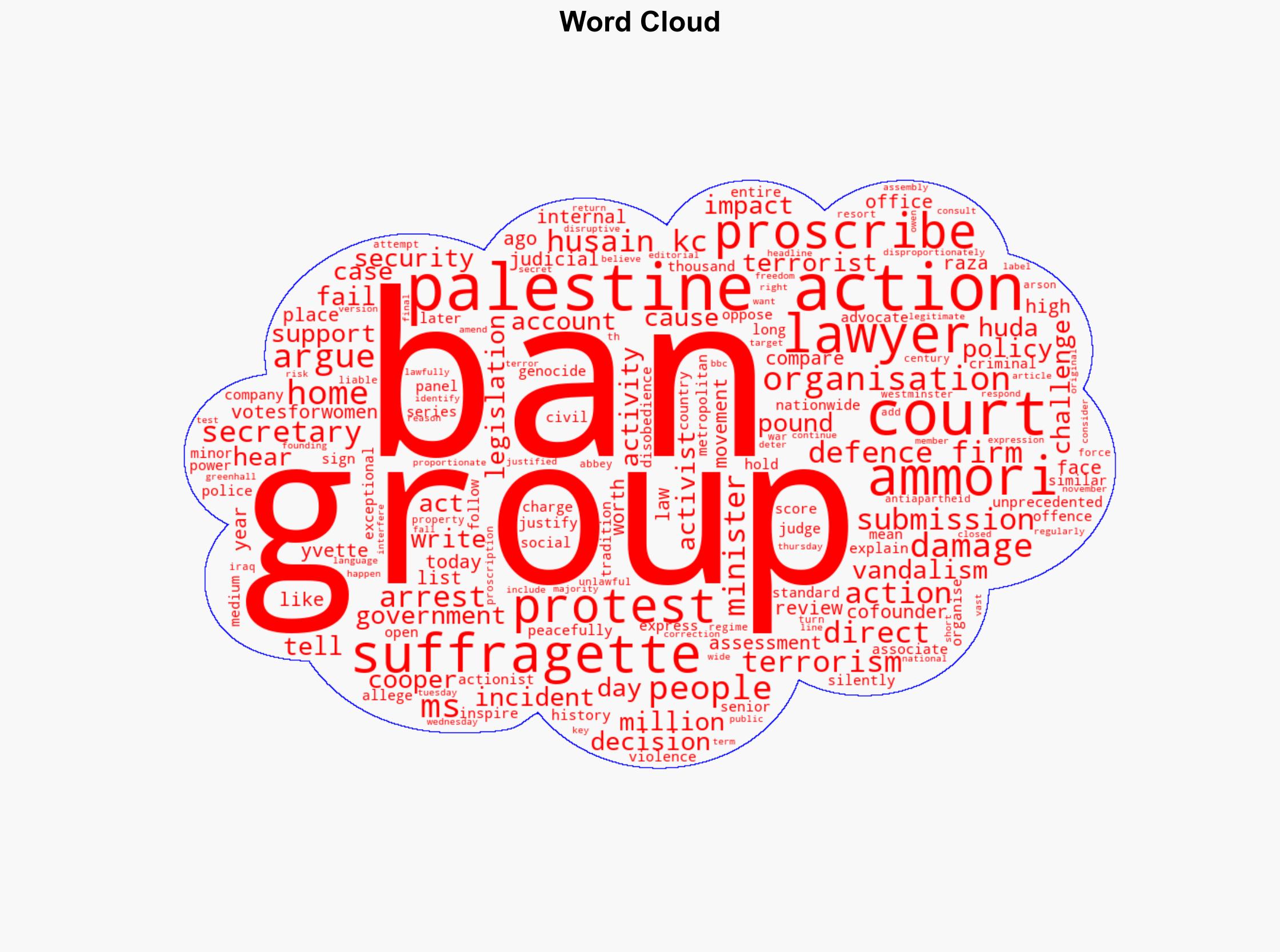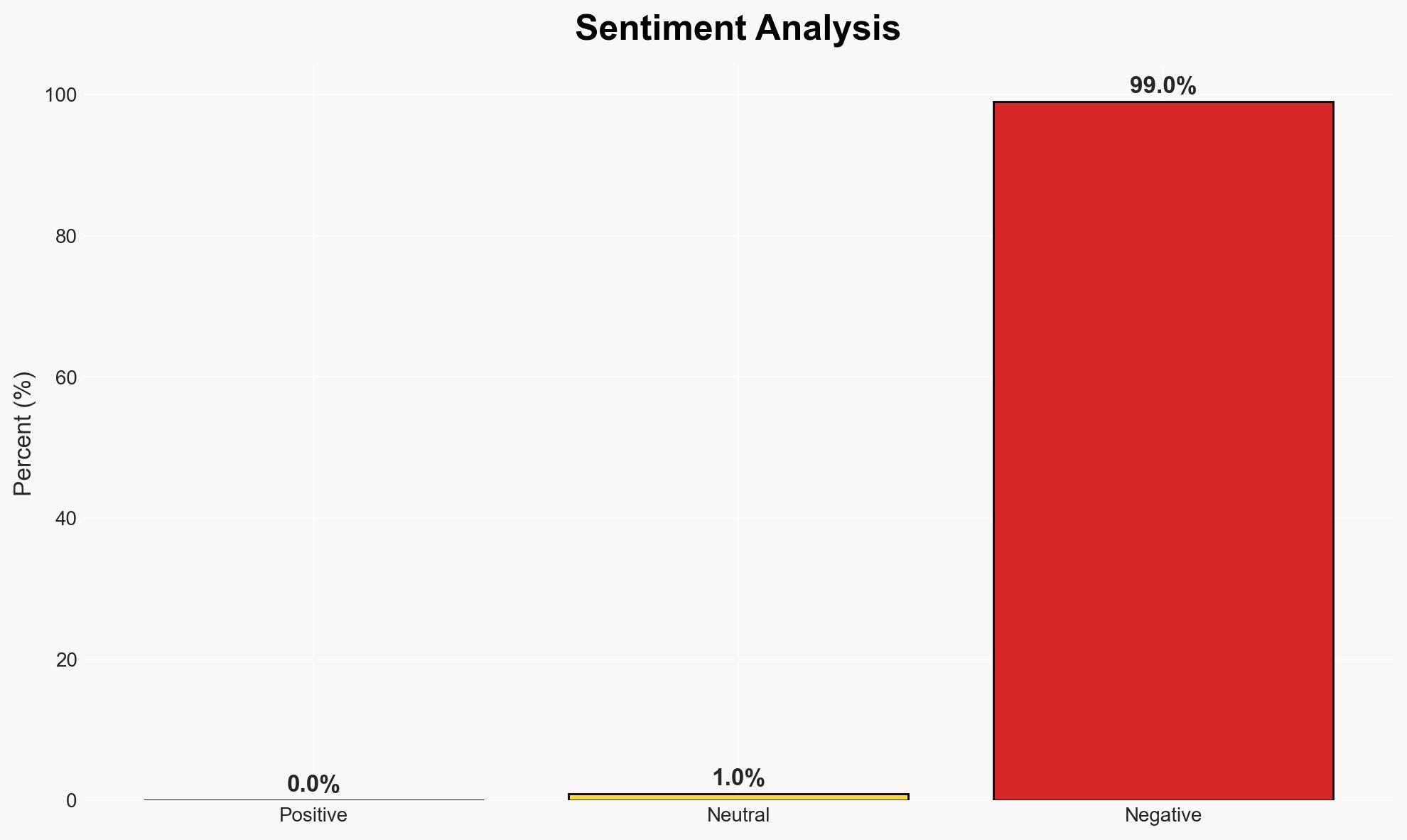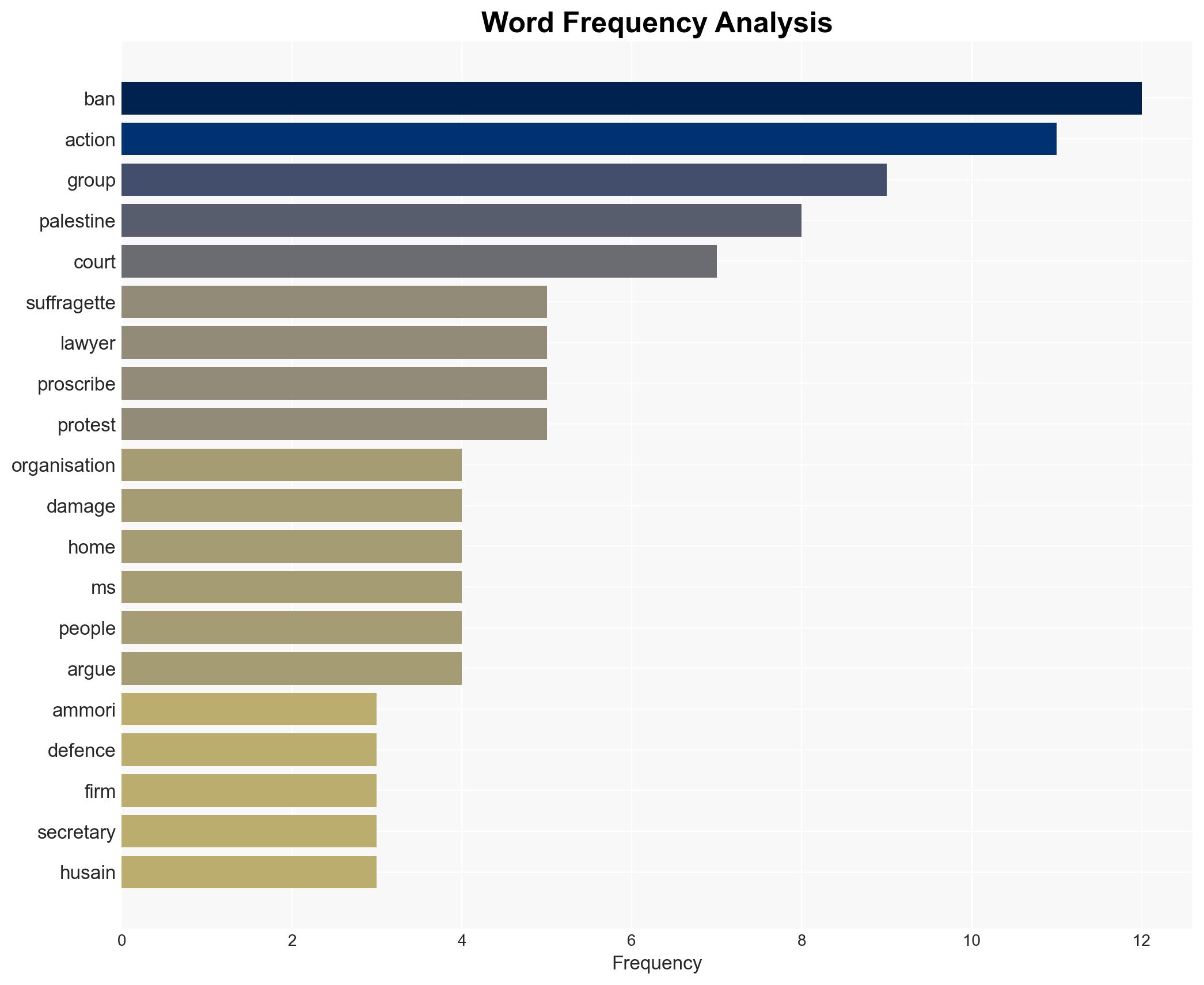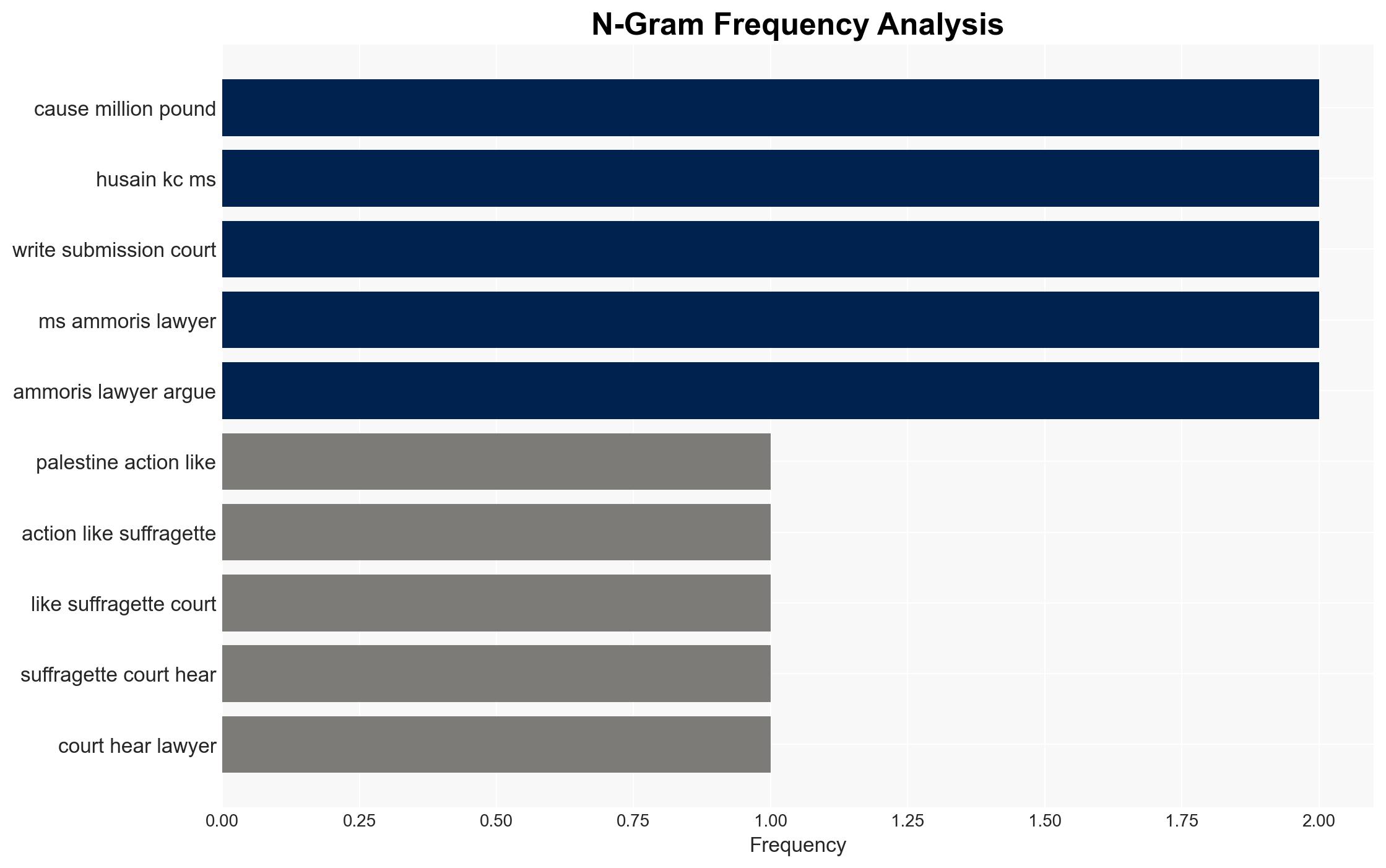Court hears Palestine Action likened to suffragettes in legal challenge against government ban on protests.
Published on: 2025-11-26
AI-powered OSINT brief from verified open sources. Automated NLP signal extraction with human verification. See our Methodology and Why WorldWideWatchers.
Intelligence Report: Terror group Palestine Action like the suffragettes court hears
1. BLUF (Bottom Line Up Front)
The legal proceedings regarding the potential proscription of Palestine Action as a terrorist organization raise significant questions about the balance between national security and civil liberties. The most likely hypothesis is that the government will maintain its stance on proscription, citing security concerns, despite legal challenges. This affects activists, legal frameworks, and security policies, with a moderate confidence level in this assessment.
2. Competing Hypotheses
- Hypothesis A: The UK government will successfully proscribe Palestine Action as a terrorist organization, based on its activities causing significant damage to defense firms. Supporting evidence includes the government’s use of terrorism legislation and the reported damage caused by the group. Key uncertainties include the legal interpretation of the group’s activities as terrorism and potential public backlash.
- Hypothesis B: The legal challenge by Palestine Action will prevent its proscription, emphasizing the group’s alignment with historical civil disobedience movements like the suffragettes. Supporting evidence includes legal arguments highlighting the group’s non-violent protest intentions and historical parallels. Contradicting evidence includes the government’s security assessment and the scale of damage reported.
- Assessment: Hypothesis A is currently better supported due to the government’s established legal framework and security rationale. Indicators that could shift this judgment include a successful legal argument by Palestine Action or significant public and political pressure against proscription.
3. Key Assumptions and Red Flags
- Assumptions: The government’s security assessment is accurate; legal frameworks will uphold current interpretations of terrorism; public opinion will not significantly shift against proscription.
- Information Gaps: Detailed content of the closed national security hearings; comprehensive data on the group’s activities and their direct impact on national security.
- Bias & Deception Risks: Potential bias in government security assessments; risk of legal arguments being swayed by historical analogies rather than current context.
4. Implications and Strategic Risks
The outcome of this legal case could set a precedent affecting future interpretations of terrorism and civil disobedience in the UK. It may influence both domestic and international perceptions of the UK’s approach to balancing security with civil liberties.
- Political / Geopolitical: Potential strain on civil liberties discourse; international scrutiny of UK legal standards.
- Security / Counter-Terrorism: Possible recalibration of security measures against activist groups; risk of increased radicalization if perceived as suppression.
- Cyber / Information Space: Potential for increased online activism and information campaigns by both supporters and opponents of the group.
- Economic / Social: Impact on defense sector operations; potential social unrest or increased activism if proscription is perceived as unjust.
5. Recommendations and Outlook
- Immediate Actions (0–30 days): Monitor legal proceedings closely; engage with civil society to gauge public sentiment; prepare for potential protests or unrest.
- Medium-Term Posture (1–12 months): Develop resilience measures for defense firms; strengthen legal frameworks to clearly define terrorism versus activism; enhance public communication strategies.
- Scenario Outlook:
- Best: Legal clarity achieved, balancing security and civil liberties, with minimal unrest.
- Worst: Proscription leads to significant unrest and international criticism.
- Most-Likely: Proscription upheld, with ongoing legal and public discourse challenging the decision.
6. Key Individuals and Entities
- Huda Ammori (Palestine Action co-founder)
- Yvette Cooper (Home Secretary)
- Raza Husain KC (Legal representative for Palestine Action)
- Not clearly identifiable from open sources in this snippet.
7. Thematic Tags
Structured Analytic Techniques Applied
- Cognitive Bias Stress Test: Expose and correct potential biases in assessments through red-teaming and structured challenge.
- Bayesian Scenario Modeling: Use probabilistic forecasting for conflict trajectories or escalation likelihood.
- Network Influence Mapping: Map relationships between state and non-state actors for impact estimation.
Explore more:
National Security Threats Briefs ·
Daily Summary ·
Support us





